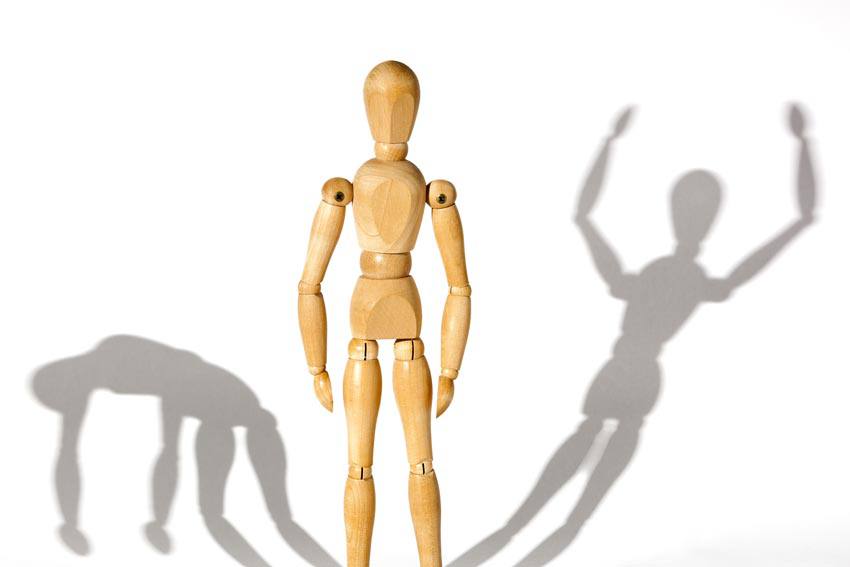Why our customers prefer Blue Cross
- Option of getting insured without a medical exam
- Excellent rates
- Pioneer in the field of health insurance with over 80 years of experience
- Friendly service from experienced agents who can answer your questions and assist you when needed
- Coverage that can be customized to meet your specific needs
- Discounts and savings with our one-of-a-kind Blue Advantage program

Bipolar disorder: Signs and treatment
Published on: February 9, 2015
Everyone has good days and bad days. We all have our ups and downs; however, when your mood swings begin to have an impact on your quality of life, your relationships with others and your performance at work or school, there may be a bigger issue at hand.
About bipolar disorder
According to Mental Health Canada, “bipolar disorder, also known as manic-depressive illness, is a brain disorder that causes unusual shifts in a person's mood, energy, and ability to function. Different from the normal ups and downs that everyone goes through, the symptoms of bipolar disorder are severe.”
It’s estimated that approximately 3% to 5% of adults have bipolar disorder. While the causes of the disorder are still being studied, as it varies on a case-by-case basis, “research suggests that the condition is due to abnormalities in the way some nerve cells in the brain function or communicate. The disorder makes people more vulnerable to emotional and physical stress. As a result, stresses, such as upsetting experiences, substance use or lack of sleep, can trigger episodes, even though they do not actually cause the disorder,” according to the Mood Disorders Association of Ontario.
It is also believed that if you have a family member with bipolar disorder, you are more likely to develop it yourself. The key to receiving proper care is understanding the signs and symptoms of the disease and getting treatment as soon as possible.
Symptoms of bipolar disorder
Bipolar disorder tends to worsen without treatment, so it is very important to get treatment as soon as possible. As with many other mental illnesses, recognizing the signs of bipolar disorder is the first step toward improving your condition.
The tricky thing about bipolar disorder is that the signs can vary from person to person, and they can vary based on the state, or episode, that a person with bipolar disorder is in.
There are four mood episodes in bipolar disorder:
- Mania: Common signs include feeling unusually high or optimistic, or extremely energetic; having trouble sleeping or concentrating, or having racing thoughts; irritability; impulsiveness; exhibiting impaired judgment; and in severe cases, delusions and hallucinations.
- Hypomania: A less severe form of mania. Common signs include feeling euphoric, productive and energetic, without a loss of touch with reality.
- Depression: Common signs include fatigue, feeling of helplessness, sluggishness, having trouble sleeping or concentrating, irritability, and in severe cases, thoughts of death or suicide.
- Mixed state: Combined symptoms of mania, hypomania and depression. Common signs include depression mixed with anxiety, insomnia, irritability, racing thoughts and extreme mood highs and lows.
How to treat bipolar disorder
Bipolar disorder is manageable. According to the Mood Disorders Association of Ontario, “the most common forms of treatment for bipolar depression and mania are medication (mainly mood stabilizers such as Lithium or Epival) and psychotherapy, used alone or in combination with other treatments. The use of atypical anti-psychotic medication such as Zyprexa, Risperdal or Seroquel has become more common, as they demonstrate fewer side effects than the older drugs, and serve to stabilize mood as well.”
Other forms of treatment include participating in support programs and alternative medical treatments such as massage therapy, meditation, yoga and aromatherapy.
You can help yourself by becoming educated about the disorder, keeping your stress levels down, monitoring your moods and making healthy lifestyle choices.
Private health insurance coverage for bipolar disorder
Part of a successful treatment plan for bipolar disorder is having private health insurance coverage to help cover the costs of medication, treatments and medical care. Learn more about your options for pre-existing conditions and health insurance by getting a free health insurance quote today.